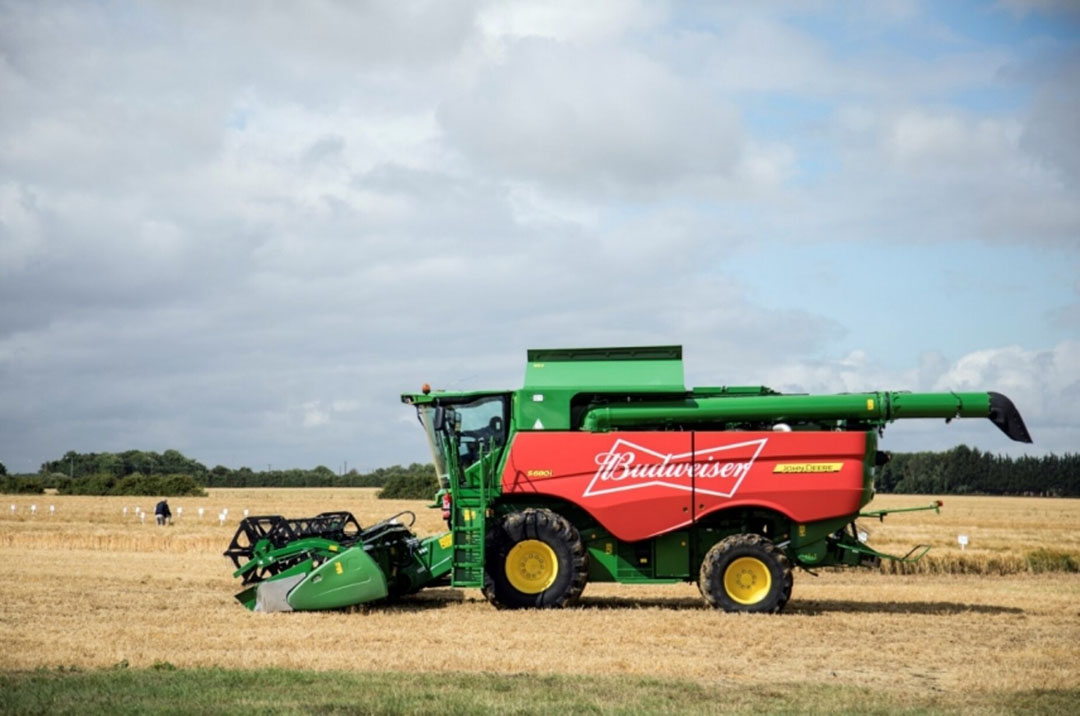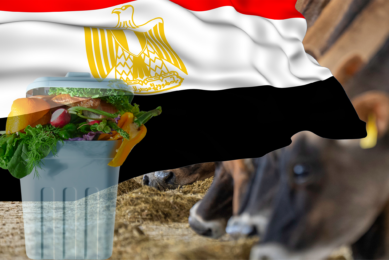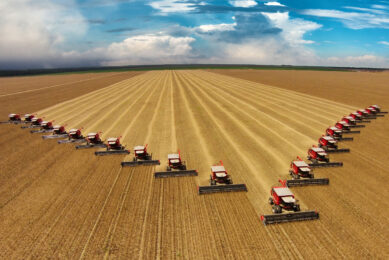Budweiser UK sources 100% barley from British farms

A major target of sourcing 100% of its barley raw material requirements from British farmers has been achieved by the Budweiser Brewing Group UK and Ireland.
The group wanted to support British farmers by fully sourcing all its barley requirements locally to produce its UK-produced beers. This now means the company buys in 40,000 tonnes of barley per year from UK farmers and does not need to import any grain from overseas, which also reduces carbon emissions.
Sustainability goals
In a statement the brewer said improving agricultural practices and reducing carbon emissions were key aims of its 2025 sustainability goals. Budweiser Brewing Group has worked with its partners to support the production of enough barley for some of the UK’s most popular beers, including Budweiser, Stella Artois and Corona, brewed at its two breweries in Magor in South Wales and Samlesbury in Lancashire. Before 2014 the Budweiser Brewing Group imported 100% of the barley used for Budweiser, as the unique properties required to brew the beer were not available in UK-grown barley. Working with agronomy, grain trading and malting partners, the brewer was able to introduce a new type of grain, known as ‘Explorer’ to the UK, which met the specific standards needed to brew Budweiser’s famous recipe. There are now more than 300 farmers growing barley for Budweiser in the UK, covering more than 6,000 hectares of British farms and producing 40,000 tonnes of barley each year.
Local communities are the lifeblood of this country, so we’re absolutely committed to supporting them, creating more efficient supply chains, and brewing the UK’s most sustainable beers.”
One of the farmers growing Explorer barley for Budweiser is Eric Wright, from Wrights Agriculture, Leicestershire. He said: “I’ve been part of the programme to grow Explorer since 2014 when the grain was first introduced to Britain to brew Budweiser. As a proud British farmer, it’s really important to me that what I produce is used in this country and supports our economy. “It’s great to know what I do is at the heart of the supply chain for a home-grown and home-consumed product.”
 Futures market
Futures market
Overview of futures prices for: corn, wheat and soybean
Sourcing 100% of our barley in Britain
This year, Budweiser Brewing Group claimed the number one brewer spot in the UK. Its UK breweries produce more than 20 million bottles and cans of Budweiser each week alone, meaning the need for barley is greater than ever. Paula Lindenberg, president, Budweiser Brewing Group UK&I, said: “We set ourselves the ambitious goal to source 100% of our barley in Britain. We are so proud to announce that we’ve reached this goal despite the uncertainties of Covid-19.
“Local communities are the lifeblood of this country, so we’re absolutely committed to supporting them, creating more efficient supply chains, and brewing the UK’s most sustainable beers.”
Consumer awareness
Budweiser Brewing Group has been working in collaboration with partners Agrii, Glencore Agriculture UK Ltd, Boortmalt and Crisp Malting Group since 2014 to develop, grow and malt the Explorer grain needed to brew British Budweiser.
Lee Robinson, executive director of Seed at Agrii, said: “It won’t come as any surprise that it’s been a tough year for British farming. The Covid-19 outbreak had a huge effect on the supply chain and the unusually wet weather in August significantly impacted harvest. “There is now undoubtedly more awareness amongst the public of where the food and drink they consume comes from which is why it’s so important for British companies like Budweiser Brewing Group to support their local industries. We’re delighted to help the UK’s biggest brewer achieve this milestone,” he added.











